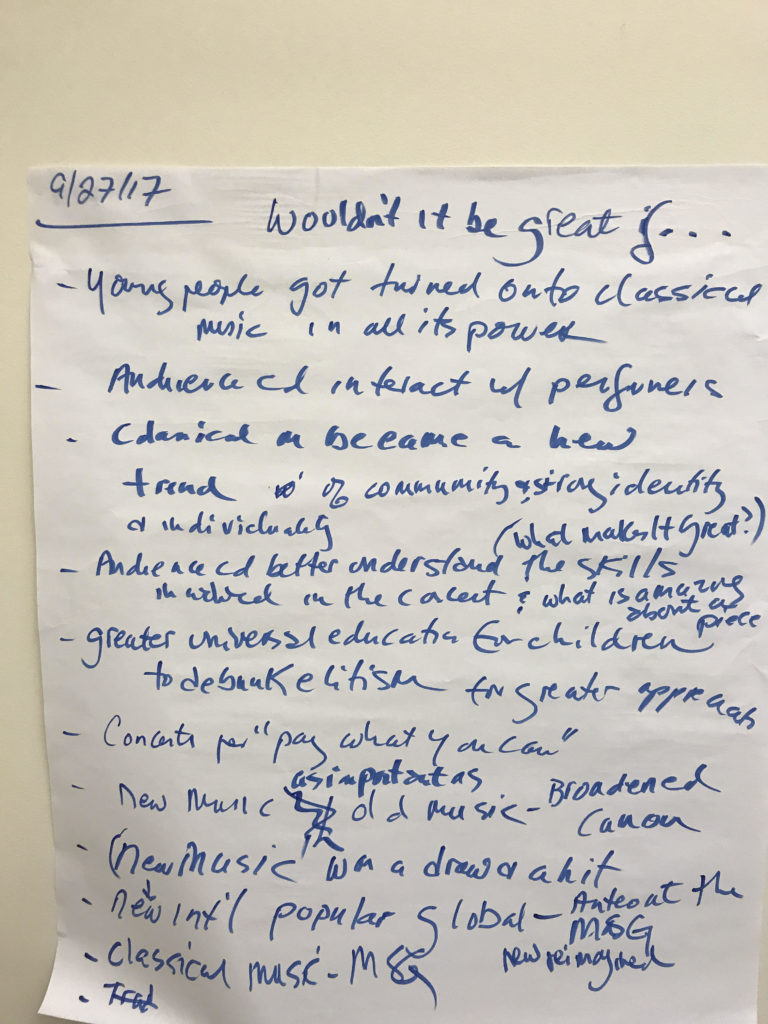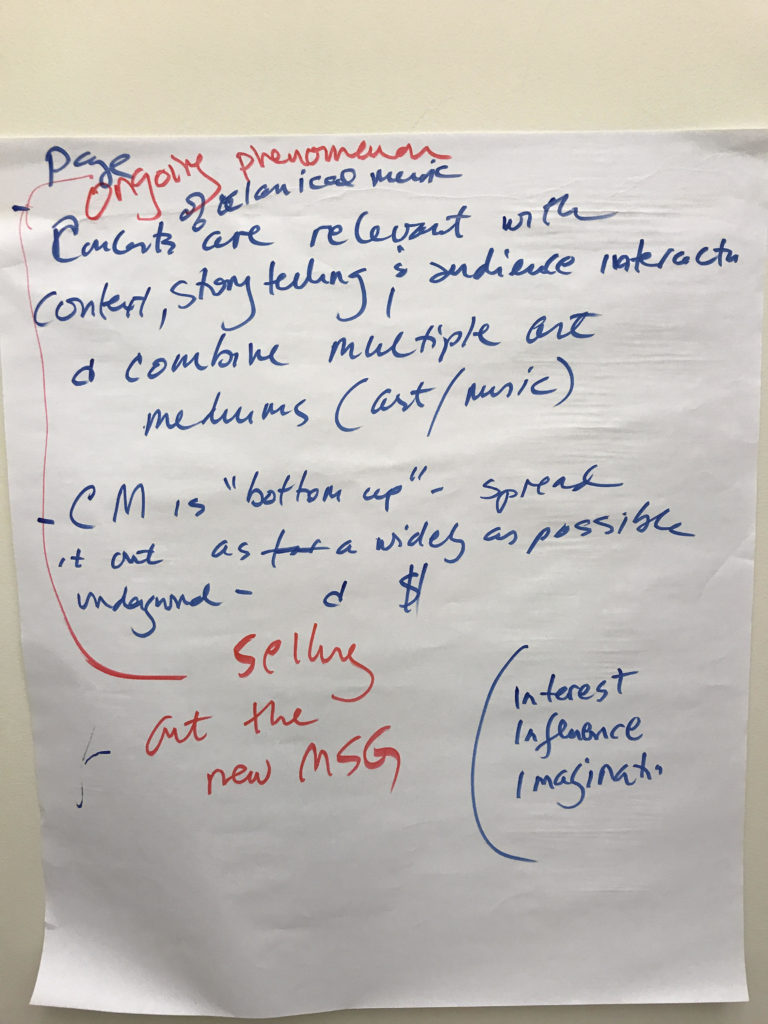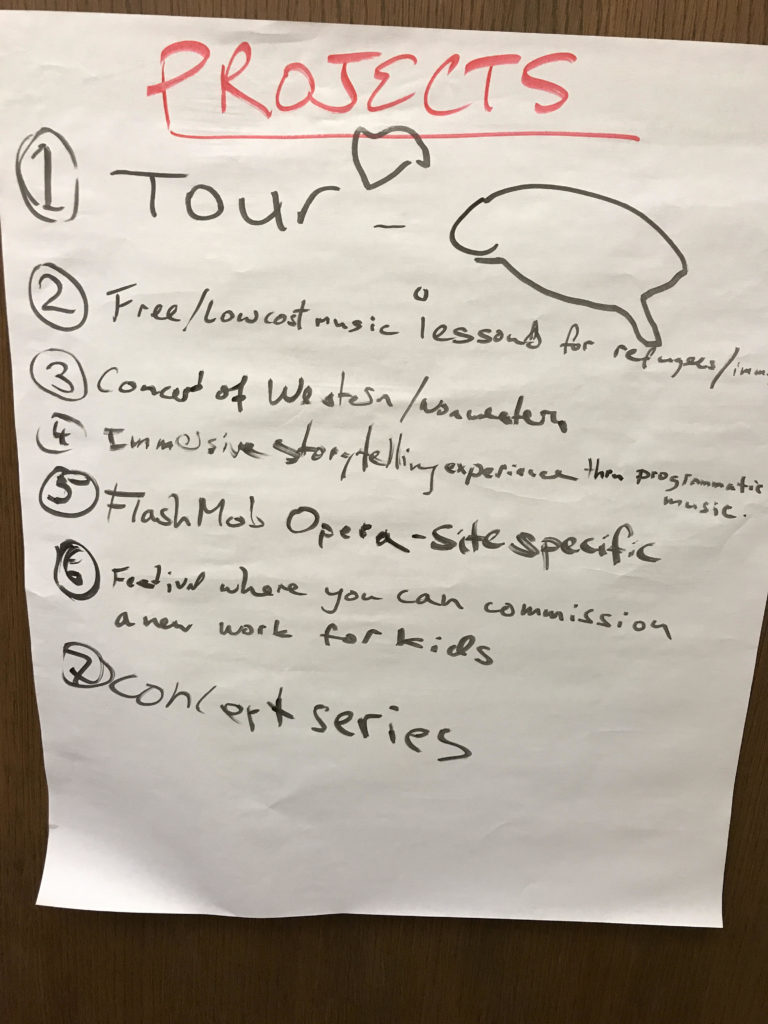Have you ever found yourself grappling with a challenging problem and then leaving your desk in disgust and frustration, only to find the answer when you wake up the next morning or when you are out for a nice walk?
Welcome to incubation, one of the magical elements of the creativity process, where you work hard on a problem, give it time to evolve and allow new ideas to unfold as a result of your hard work. Incubation does not just happen. Instead, incubation requires preparation so that that the elements of a great ideas are in place for you.
A great example of incubation is how the students in my class on Innovation, Collaboration and Entrepreneurship at the Yale School of Music chose their projects and formed collaborative project groups. The projects are intended to solve a critical problem in the classical music field and to generate innovative solutions to these problems. Moreover, we are doing these projects in collaborative groups so that students can leverage their strengths and skills to allow for a stronger project solution.
Notice how many steps we went through before creating these groups and how much preparation was involved! These were the critical elements of incubation that allowed the project groups to form.
-
The Ideal World
First, we examined the classical music ecosystem and brainstormed about the Ideal World in which our students imagined what the perfect world would look like, using the question:
Wouldn’t it be great if….


This process planted the seed to think big about the problems in the classical music field and to paint a picture of a better, more perfect world.
-
My Life Purpose
In our next class, we explored the big question of WHY music was important to our students. They created Life Purpose statements to articulate what they perfect world looked like for them and what was their role in creating a more perfect world. By asking these questions, students were able to probe the importance of their musical endeavors and think about how to use their passions and talents to create a better world.
-
My Mission
From their Life Purpose statements, students derived personal Mission Statements to specify the audience whom they were helping and what specific activities they did to benefit this audience. By doing a mission statement, students had an opportunity to zero in on specific things that they could do. This, in turn, set up the process of incubation around their semester collaborative projects.
-
Projects to Carry Out My Mission
In our next class, students shared their mission statements with each other and we paid close attention to discern who had overlapping missions. Along with the mission statements, I asked students to come up with ideas for a project that would enable them to carry out their mission and solve a critical problem in the classical music field with an innovative solution. Several students pitched their project ideas to the class and we came up with the following list:

A little generic, right?
But there is more!
-
Project Speed Dating
Class ended on a high note and for homework, I created a discussion board and asked students to continue adding project ideas to the board. This is where the incubation was really evident! From our short list of projects, students added a few new ideas and fleshed out the details.
By the time of our next class, several strong project ideas came to light, coalescing around 3 different audiences:
- Immigrants and Refugees
- Our peers
- Members of the Yale Community who were distressed about racial tension
Students again pitched their project ideas and we then had a “speed dating” session where students interviewed the project originators to decide which project group to join. By the end of class, we had 3 well-defined project groups and each project group met before the next class to define in greater detail their project ideas.
-
Project Groups
Thanks to the foregoing elements and a few weeks of incubation, we now have the following project groups:
- Helping Immigrants to Find a Home Through Music
Four students are creating a shared musical experience to benefit an identified immigrant population in New Haven.
- Reimagining the In-Person Concert Experience
Four students are creating an innovative and re-invigorated concert for their peers in an intimate environment where people will meet, mingle and bond through the musical experience.
- Using Music to Tell the Story of Racial Tension in America
Four students want to promote racial harmony and inclusion on the Yale campus. They plan to commission a new work and use storytelling to create an immersive, interactive musical and educational experience.
What students are learning is that creativity and innovation are a process that involves many steps and a lot of hard work. And incubation is key to allow the ideas to germinate, develop and blossom. We are by no means finished so stay tuned for how these wonderful projects will unfold over the course of the semester.
So the next time you are stuck on a problem and have done a lot of good thinking and preparation, leave it and allow time for incubation to work its magic!
